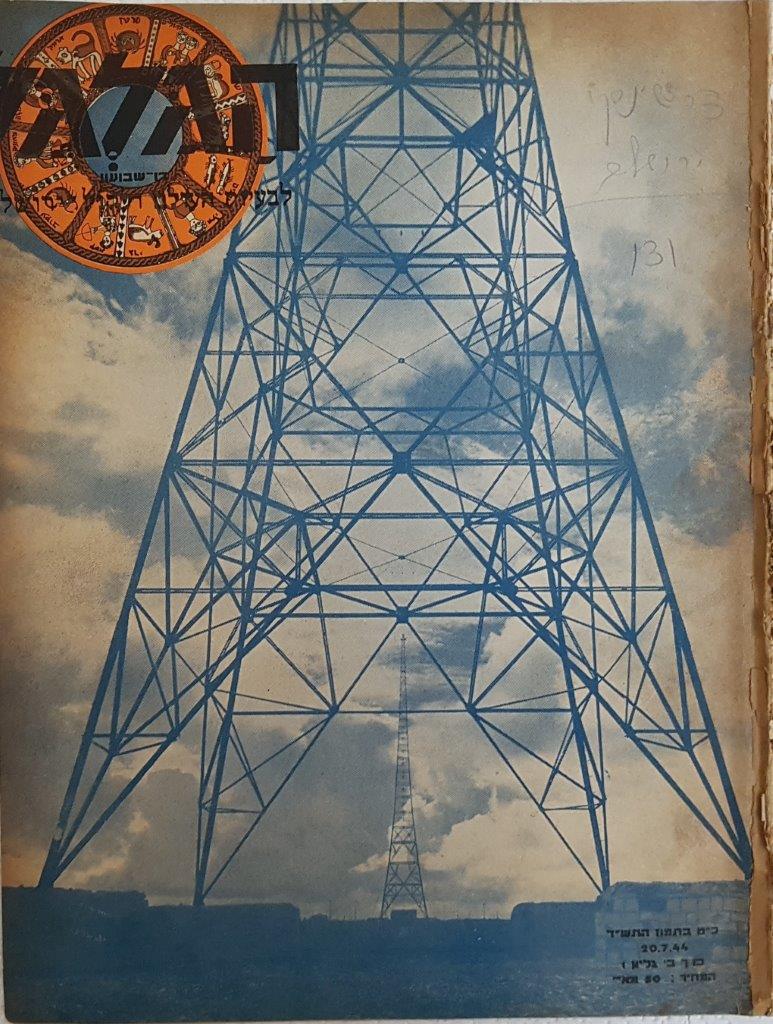
Digitizing History: Palestine Broadcasting Service, 1936-1948
(under Construction)
under construction
INTRODUCTION
PALESTINE BROADCASTING SERVICE (PBS) AN EPISODE IN EARLY PUBLIC DIPLOMACY, 1936 - 1948This website is a work in progress. It will try to reconstruct in a digitized format, the Palestine Broadcasting Service (PBS) and its experiment with public diplomacy 1936-1948. It will do this by focusing on the programs and publications produced by the PBS, including daily schedules. It will take into consideration the people and personalities behind the scenes, behind the the microphone, and their target audience, the "general public". Perhaps it is more accurate to say that the target audience was the "movers and shakers," those in local leadership positions in a wide a spectrum of subjects or interests, as possible.
It's easy to dismiss the PBS as just another colonial institute, or a clone of the BBC. However, to do that would be doing those that served or worked at the PBS a great disservice. The PBS was not just pioneering radio broadcasting it was pioneering what would later be termed "public diplomacy". In point of fact, the PBS, unlike the BBC, was a British government agency, established as a department of the Post Office, and administered by the Postmaster-General.
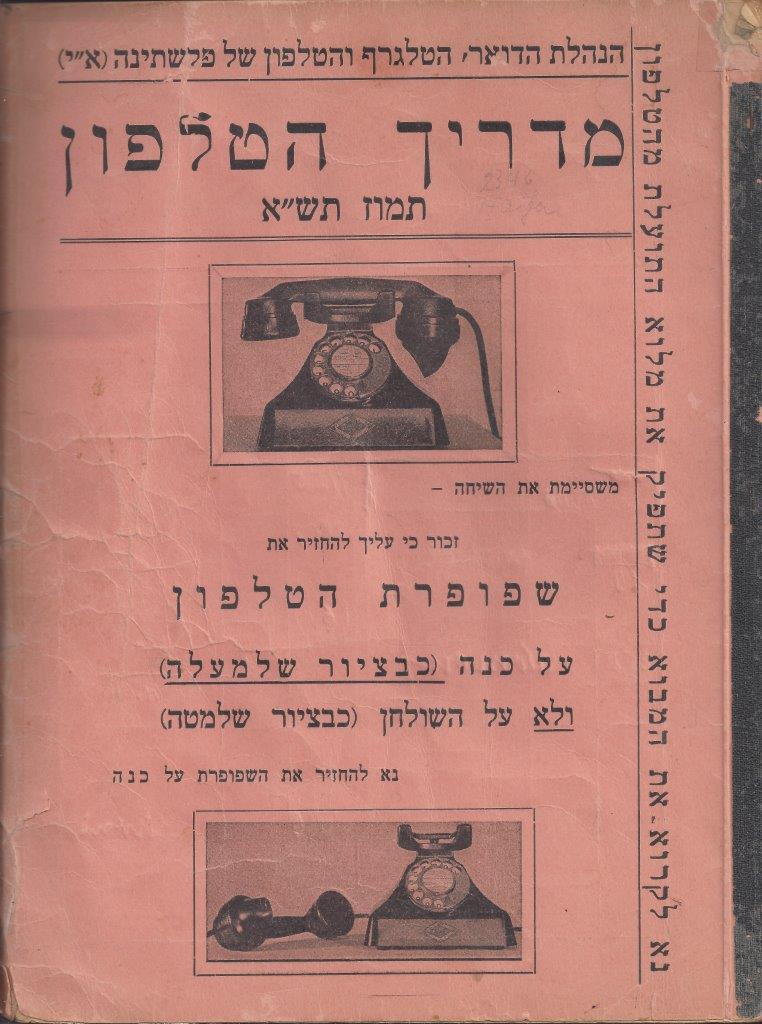
|
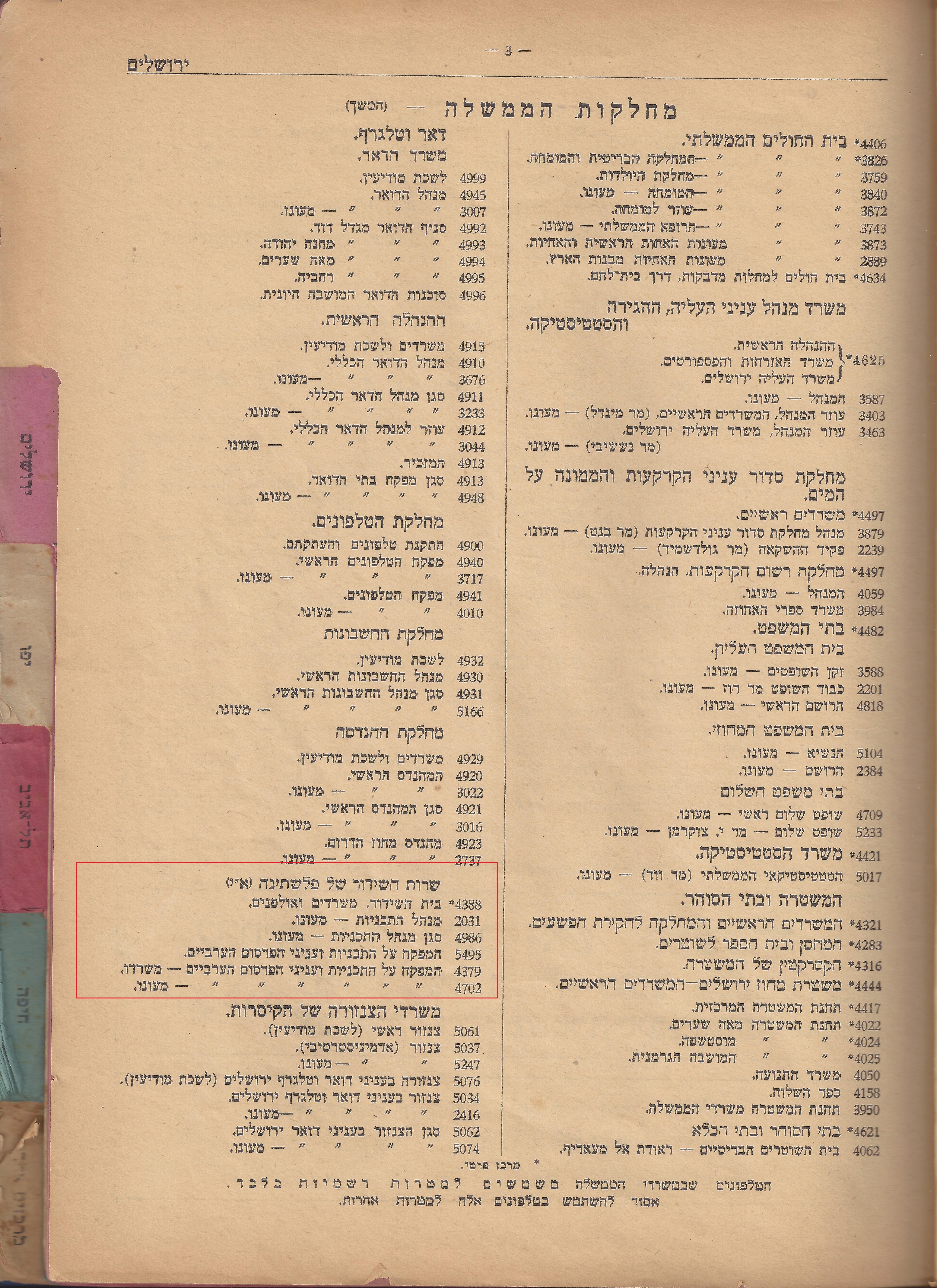
|

|
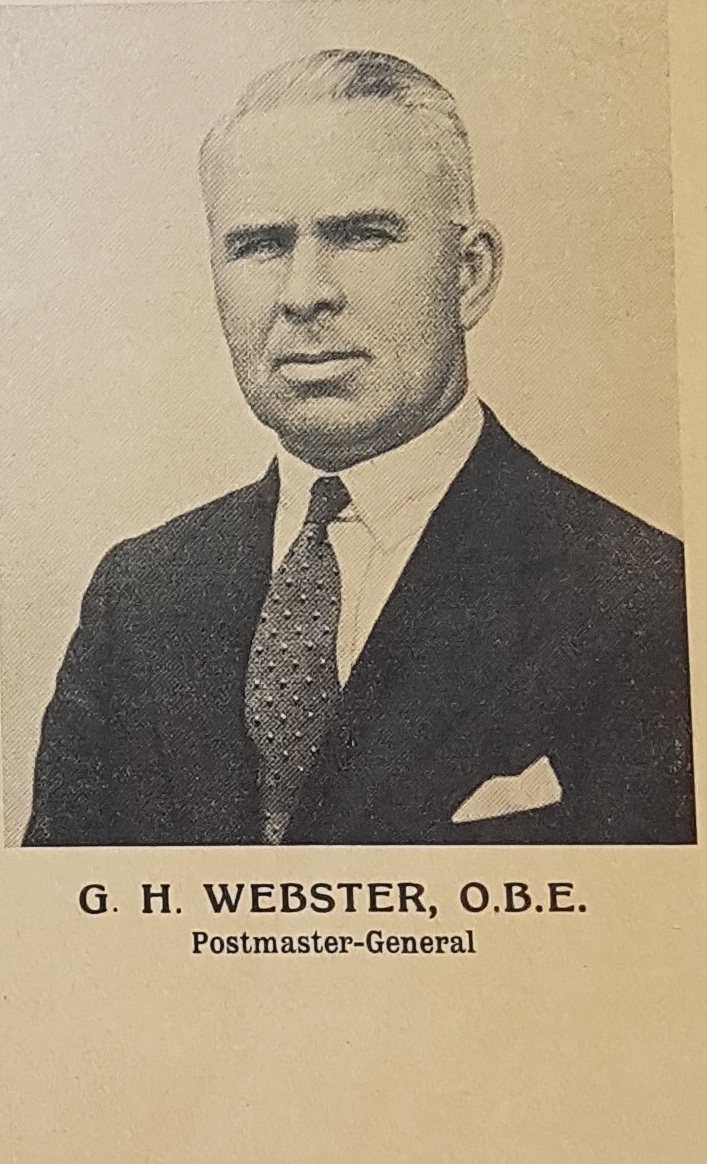
|

|
| Lieutenant-Colonel William Hudson | George Henry Webster |
G. D. Kennedy: (1945-1946)
The highest ranking official killed in King David Hotel bombing, 22 July 1946 |
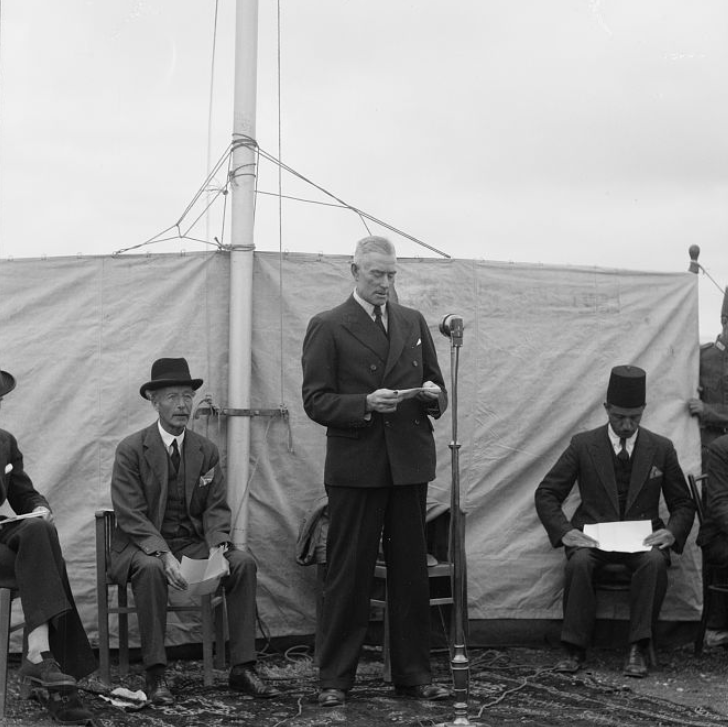
|
|
William Hudson, Postmaster-General welcoming Sir Arthur Wauchope, the British High Commissioner to open the new Palestine Broadcasting Service Radio Station, March 30, 1936. Photo: Library of Congress, Washington, DC. To read William Hudson's speech click here |
Directors of PBS Programmes / Broadcasting
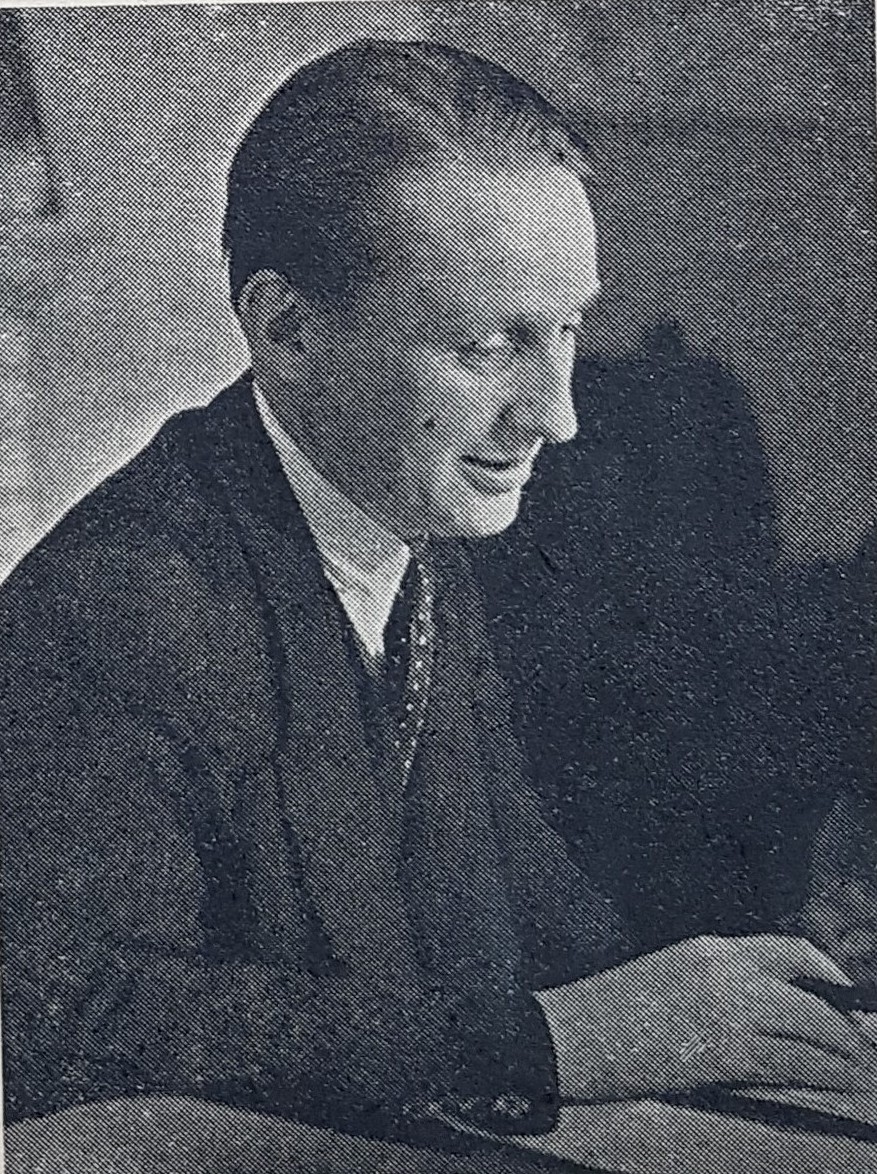
|
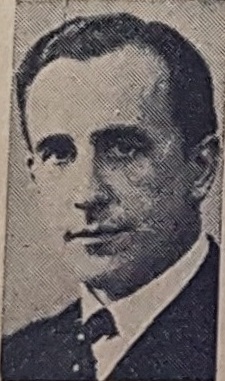
|
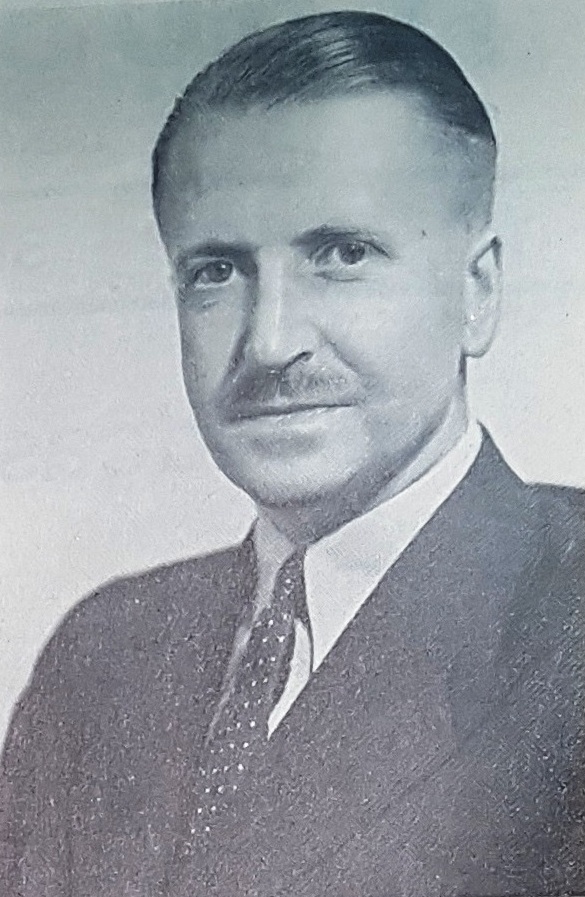
|
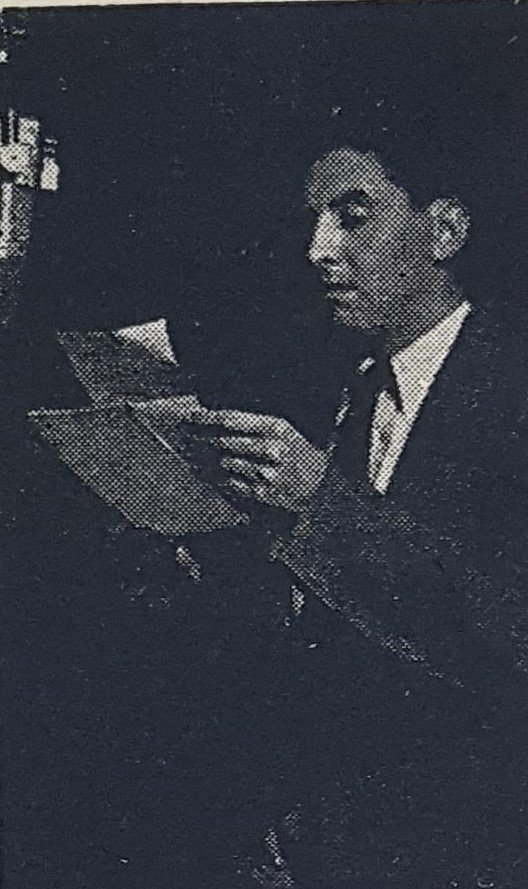
|
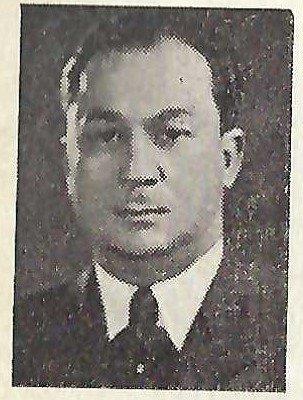
|
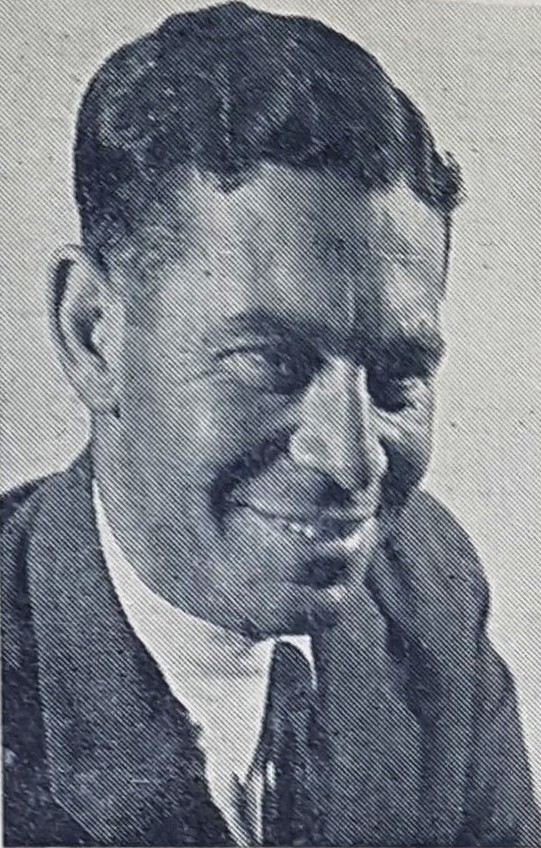
|
|
R. A. Rendall
April 1936 till October 1936 |
Stephen Fry October 1936 - October 1938 |
Crawford B. McNair
1938- 1941 |
Reginald "Reggie" Smith
Controller of English and Hebrew Programmes,
1942-1945
|
Azmi Nashashibi Controller of Arabic Programmes |
Edwin Samuel 1945-1948 |
The people involved in setting up and administering the PBS throughout these thirteen years may not have technically used the term "public diplomacy" as the term "public diplomacy" only gained popularity after 1965 when it was "coined" by Edmund Gullion, Dean of the Fletcher School of Law and Diplomacy at Tufts University.
Definition of Public Diplomacy
While there is not a single agreed definition for the term "public diplomacy", there is a working definition for it, which is:
"The transparent means by which a sovereign country communicates with publics in other countries aimed at informing and influencing audiences overseas for the purpose of promoting the national interest and advancing its foreign policy goals."
(see webpage for University of Southern California (USC) Center for Public Diplomacy).
There are other aspects of public diplomacy that are essential for this to work efficiently. One of these is intelligence gathering, but only of information that is already in the public domain. The need to identify leadership/elites who have power, influence and authority within the local communities. Who are these elites in any given situation. Obviously they change over time, so there is a need to identify and chart these changes.
In addition, diplomats tend not to like "surprises" as a general rule, unlike in war. Surprises never seem to end well. They prefer stability and predictability to chaos and unpredictability in conducting their daily workload.
This is a positive working definition of "public diplomacy".
Those that don't like public diplomacy tend to see the term pejoratively. To them it is simply another word for "propaganda". I am not going to focus on that aspect in this website and, suffice to say, the role of the PBS fits the positive aspects of public diplomacy like a glove.
Matching each separate element of this definition to the work of the PBS we have the following:
1. TRANSPARENCY
TRANSPARENT MEANS OF COMMUNICATION: How transparent, how opaque was the PBS? From the outset the PBS was meant to be transparent in all its activities. In 1938 (Friday September 30 ) it began publishing a bi-lingual weekly magazine (Hebrew and English) called Jerusalem Radio (Radio Yerushalayim - רדיו ירושלים) which it claimed at the time was "the only radio publication in Palestine". It had articles on radio personalities, backgrounders to the stories, schedules and from time to time transcripts of the more significant programs.
It may have been more transparent than was necessary as in the June 30, 1939 edition (Vol. 2, No 27) when it gave an official description of the new PBS studios in Melisande's Way, in Jerusalem. Two week later, Vol 2, No 29 issue (Friday July 14) followed up with a special supplement on the new premises. Despite an assurance that "The security aspect has not been neglected and suitable steps have been taken to safeguard the building and the apparatus as well as artists and staff visiting the premises." These two articles were a godsend for anyone planning to blow up the premises.
On August 2, three time-bombs rocked the studio, killing two local members of staff. Mrs May Weissenberg, originally from South Africa, who was organizer of the English Children's hour, English announcer, actress and producer, and Mr. Adeeb Mansour, one of the control-room engineers. Transparency has its limits. (See full story in sidebar "An Unsolved Mystery"). To this day, no-one really knows who planted these bombs. "Etzel" the organization regarded by the British Authorities as a terrorist organization was one of the key suspects. But only one young staffer who admitted to being a member of "Etzel" was arrested and given an administrative sentence, not for the bombing but for being a member of "Etzel". No significant evidence was actually found linking "Etzel" to the bombing.
If it had been "Etzel" then the PBS had not learned its lesson, as seven years later, Hagalgal magazine (Volume 3, Issue no. 35, 1946) had a two-page photo spread on a visit to the PBS studios to commemorate the 10th anniversary, in their special commemorative issue dedicated to the PBS. "Etzel", it seems had bigger fish in their crosshairs. On July 22, 1946, that year the King David Hotel was blown up, killing 96 people.
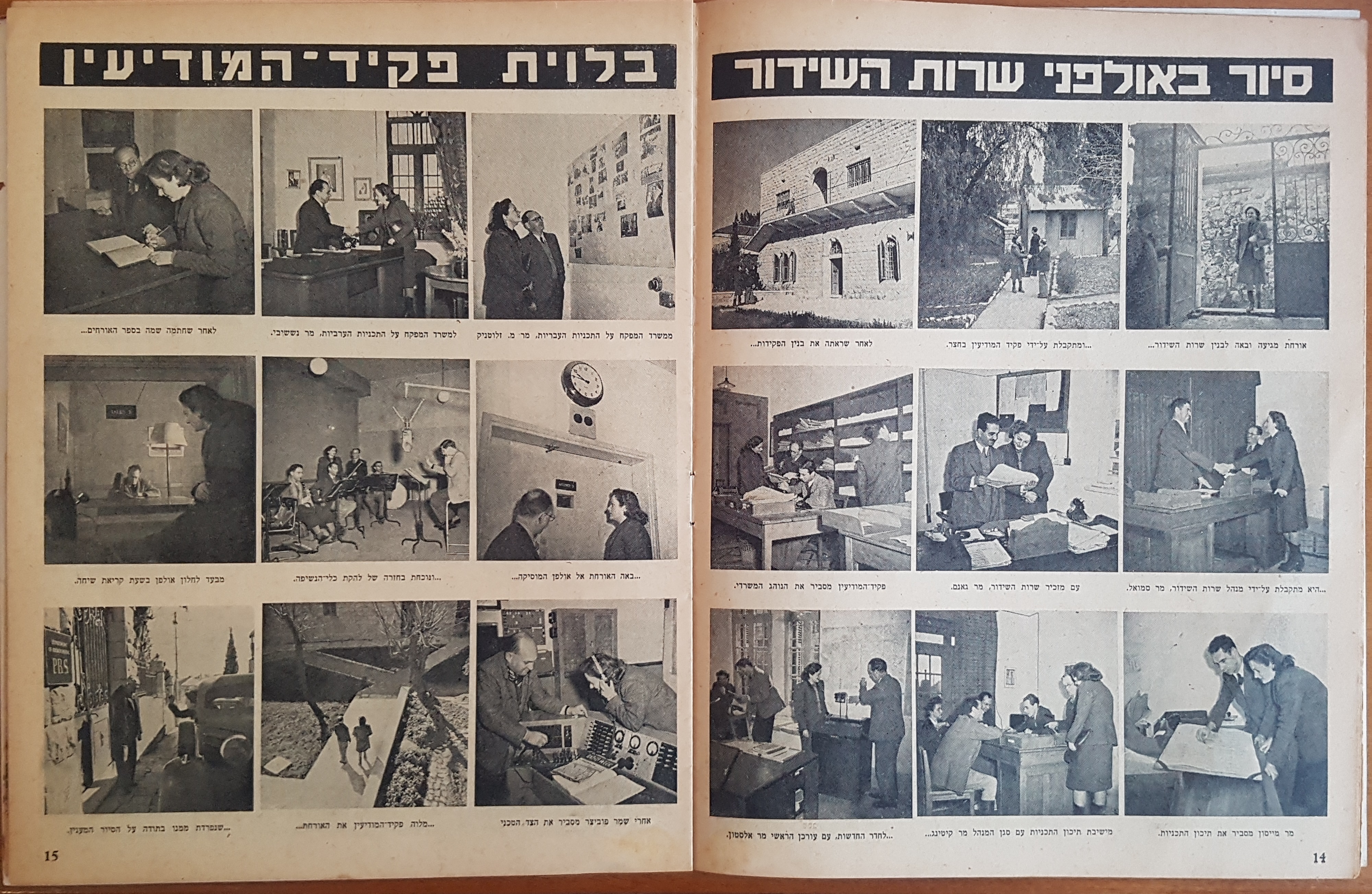
|
|
Hagalgal magazine Volume 3, No. 35, special commemorative issue:
|
From 1945, PBS broadcast a weekly program entitled Between Ourselves" (בינינו לבין עצמנו Bein-aiy-nu Levain Azmainu). While actual recordings of these programs have long disappeared, we can find transcripts (click here) peppered throughout PBS's weekly flagship Hebrew publication"Hagalgal". More on "Hagalgal" later. These programs were always delivered by the senior management team, British and local: Edwin Samuel,Director of the PBS; Rex Keating, Deputy Director of PBS; Mordechai Zlotnik, Director of Hebrew Programs; Karl Salomon, Musical Director, and others.
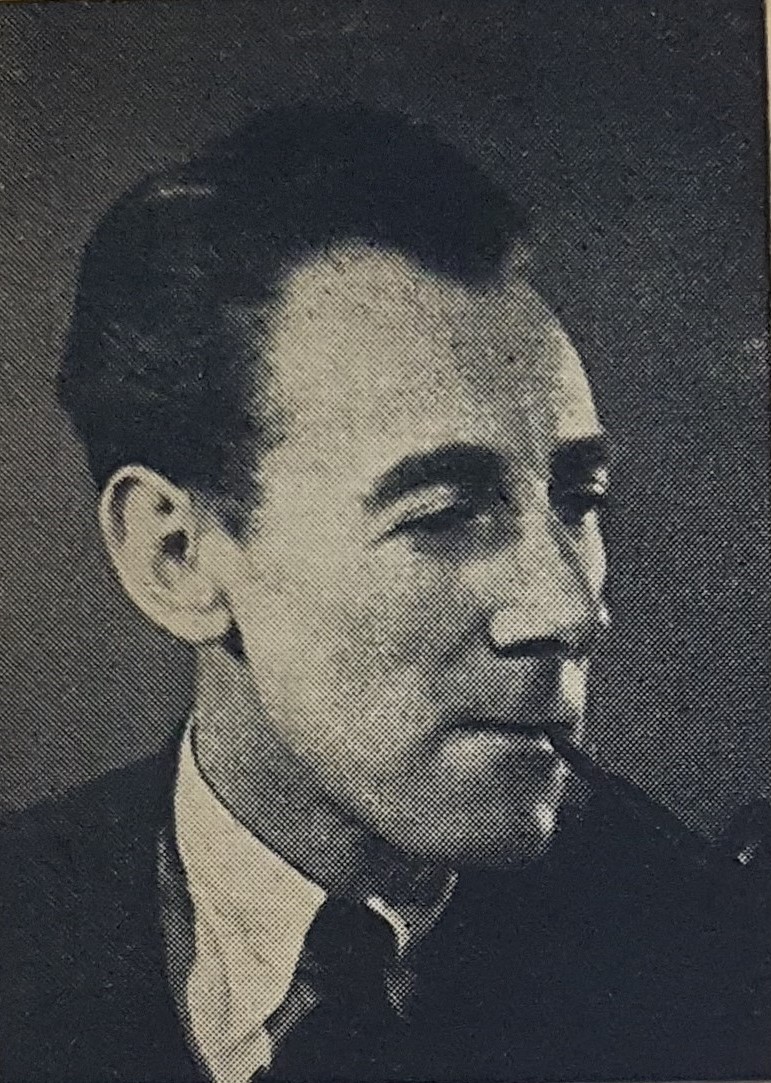
|
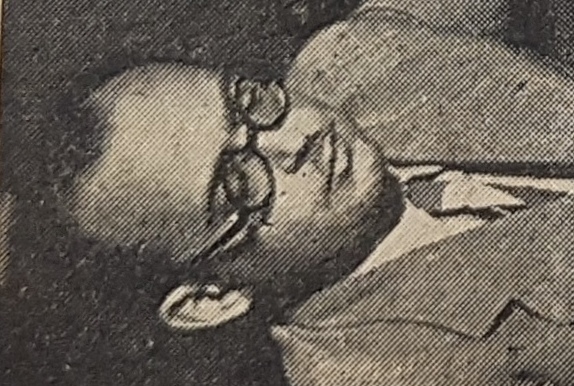
|
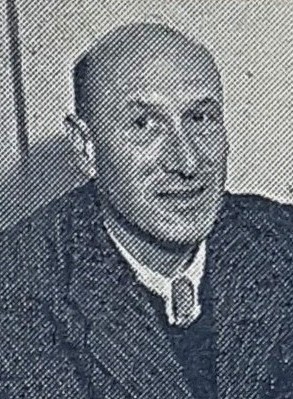
|
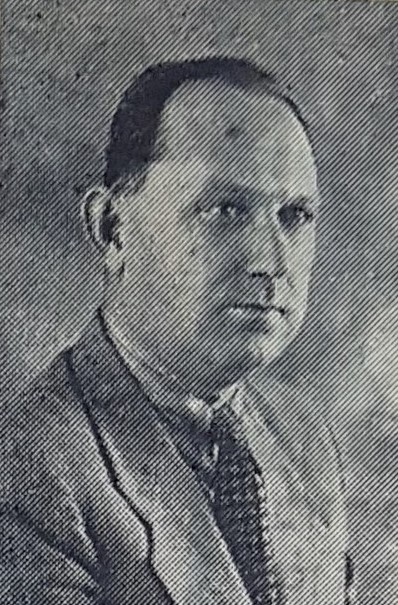
|
|
Deputy Director of PBS 1945-1948 |
Director of Hebrew Programs
|
Music Director
|
Correspondent for Diaspora Affairs
|
Edwin Samuel, Director of Broadcasting delivered the broadcast, in English, on Fridays, while Mordechai Zlotnik, Karl Salomon, and others, each in their turn, delivered either a Hebrew translation or completely different version the next day, Saturday evening, following the Sabbath holiday. This program was a bulletin board of program, staff, and policy changes. It often included in-house management details, such as general statistics on budgets and royalties, information on the availability of training programs, among other things.
Public Feedback/ Listeners Planning Committees
The broadcasting authorities were constantly trying to develop a better product, to find out what the public thought of their broadcasts, what would the public like to see changed. To that end, the PBS established a Listeners Planning Committee. This went round the main cities and towns of the Yishuv to find out what listeners really thought of them first hand. From a public diplomacy perspective, it was exceedingly important to get to know their audience and to see whether the broadcasts were in fact influencing hearts and minds. Another way was through competitions and quizzes, requesting listeners to send in their answers to the PBS, or just to correspond with the radio station to subscribe to the publications and let them know about likes and dislikes. The staff at PBS would then have a better idea as to who was tuning in to their broadcasts
2. INFLUENCING TARGET AUDIENCES
Initially, in the planning stages, it was clear that the target audience would include both urban and rural populations. They would outreach to every nook and crannie of the land. One caveat: No Politics! In point of face, that just meant not to get embroiled in local party politics, at least not directly.
As the High Commissioner Arthur Wauchope delivering the key note address at the inauguration of the Ramallah Transmitter (March 30, 1936) said (my italics):
"..we determined to establish a Broadcasting Service in Palestine, that will work for the advantage of the people both in town and country.
The Broadcasting Service in Palestine will not be concerned with Politics. Broadcasting will be directed for the advantage of all classes of all communities. Its main object will be the spread of knowledge and of culture nor, I can assure you, will the claims of religion be neglected.
As in all our activities, we shall start on a small scale but, God willing, we shall advance step by step, until we have a service worthy of the vivid and varied life of Palestine.
We shall try to stimulate new interests and make all forms of knowledge more widespread. I will give you two examples in both of which I have a deep interest.
There are thousands of farmers in this country who are striving to improve their methods of agriculture. I hope we shall find ways and means to help these farmers and assist them to increase the yield of the soil, improve the quality of their produce, and explain the advantages of various forms of cooperation.
There are thousands of people in Palestine who have a natural love of music, but who experience difficulty in finding the means, whereby they may enjoy the many pleasures that music gives. The Broadcasting service will endeavour to fill this need, and stimulate musical life in Palestine, so that we may see both Oriental and Western music grow in strength, side by side, each true to its own tradition..."
In other words, the target audience as initially envisaged included: town and country; all classes (Britain had then a very class oriented society); religion; science and technology; education; culture; and the arts, particularly classical and local music. That "the Broadcasting Service in Palestine will not be concerned with Politics" just meant not concerned with local political parties, such as Mapam/Mapai, etc.
But the News broadcasts were always important (see sidebar).
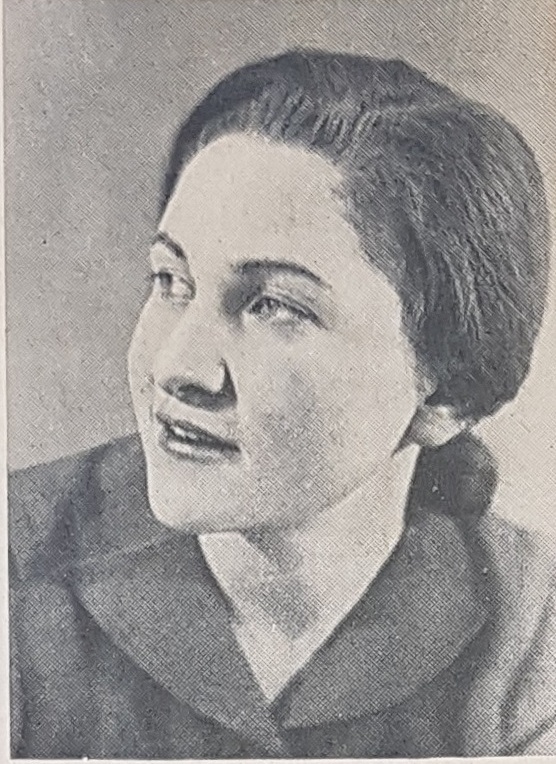
Ruth Belkine
Chief News Editor, PBS
"The Golden Voice of the PBS"
3. BRITAIN'S NATIONAL INTEREST/FOREIGN POLICY GOALS: To promote unity between Britain and and the diverse communities of Palestine (Jewish, Arab and Christian) and to promote unity between the same diverse communities of Palestine themselves.
Very quickly they added into their program schedules that included news and announcements; Language learning on the air (English, Arabic and Hebrew); astronomy; international and current affairs; industry and trade; the national economy; labour and social issues which included women affairs; programs for youth (sport and physical fitness programs); education (schools and institutes of higher education); book reviews; national campaigns (health and road safety, among others) ; entertainment, radio technology, and the future of communications, television.
Radio then was an outreach tool par-excellence. The various departments of the mandatory government could link to their Jewish and Arab counterparts in ways unheard of before the advent of radio. These counterparts included the Vaad Leumi, which was, for all intents and purposes, the Jewish parliament- in-waiting (today, the knesset); The Histadrut (Labour Federation) ; and Non-Governmnet Orgnizations (NGO's) such as WIZO: Women's International Zionist Organization; and Hadassah: The Women's Zionist Organization of America ; roads, railways and fledgling civil aviation authorities, among many others, the list goes on.
They could develop a relationship with these institutions, either to tap them for local experts to talk about their professsional subjects - so long as they had a good radio voice, and steered clear of what was regarded as controversial areas, as stated in contract with the PBS from 1936:
" The Artist further warrants that any such manuscript work as aforesaid shall not contain anything political, libellous or slanderous character or anything calculated to bring any government, race, religion, community or sect into disrepute."
All the more important during the war years.
Or, to bring over experts from Britain, America, Western Europe, or the British Commonwealth. As Wauchope had stated "to spread knowledge and culture...to stimulate new interests."
Sound Recordings
There are frustratingly very few audio recordings that remain from the programs that are in the public domain. But recordings there were! As Rex Keating and Ruth Belkine (the newsreader) put it...
"Rex Keating: A favorite expression during the war was "Off the record", but that wouldn't apply to broadcasting - much of which is "on the record" quite literally, on discs. In the PBS library there are hundreds of bits and pieces of radio programmes - excerpts from talks, plays, speeches, replays - all collected over a period of years, mostly forgotten on a few top shelves until on rare ocasions such as this, they are taken down and dusted and through the magic of modern radio are made to release their imprisoned sounds and voices from the past.
Ruth Belkine: And that's just what we are going to do now - Let the PBS tell it's own story from its own records of ten years - the narrative will be a little fragmentary in places, a little distorted in others for apparatus is not infallible and discs were sopmetimes hard to come by, particularly in the war years. Therefore, a little jerky perhaps, but interesting, as any biography of Palestine must be. So let's turn back the clock"
Source: The First Ten Years, Rex Keating, broadcast March 30, 1946. (From Rex Keating Collection, 2/6/1, MEC Archive, St. Antony's College, Oxford).
Clearly, for a study of radio without audio recordings is a major disadvantage. We have to rely on the next best thing, transcripts. In some cases transcripts of the more popular programs appearing in full, excerpts, or synopsis in the PBS's own publications such as Jerusalem Radio a weekly publication that started in September 30, 1938, and Hagalgal the magazine that replaced "Jerusalem Radio", starting July 22, 1943. Hagalgal started out as a fortnightly publication becoming weekly only in November 1944. In addition, transcripts of the radio programs are to be found in books and/or pamphlets, that were published as aids to following the radio broadcasts, or for those without radios to be able to learn about the programs without having to listen in to the broadcasts themselves, or who missed the broadcasts for whatever reason.
Some examples of these pamphlets/books include: Let's Speak English, by the President of the Brighter English League (24 lectures, 1938-1939); A collection of 17 lectures (in Hebrew to Jewish farmers) on agriculture by the Department of Agriculture and Fisheries, broadcast on PBS radio, 1937-1939;Hebrew for Yiddish speakers, by Saul Barkali (1947); Morning Physical Fitness Exercises, by Michael Ben Hanan (1948); and many others.
THE LANGUAGE BARRIER Language was another problem. The BBC may have had regional divisions to consider, but basically only one language, English, and the occasional program in Welsh or Gaelic. They had one major publication flagship for its schedules, The Radio Times. The PBS in considering their target audiences had to prepare programs and publications in three languages, English, Arabic and Hebrew. This was a heavy financial and personnel burden for the PBS- they had to hire people that could communicate both the spoken and written word in all of these language. They also needed translators.
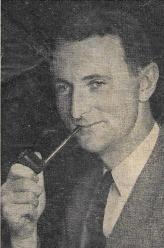
Ralph Poston |
Ralph Poston, Deputy Director, Programmes, PBS wrote in the Jerusalem Radio , March 31, 1939: "So often the criticism is heard 'such and such a station cannot receive much more in licence fees than the P.B.S., yet it gives much better talks and concerts'. True, it may not receive a total which is bigger, but it does not have to divide its budget into three parts to cater for three language groups. The P.B.S. would be a much easier organisation to run if, for instance, it could spend all the money it had available for music on Western music, or Arabic or Jewish Music - but instead it is forced to divide its budget among the three programmes, a fact which critics would do well to remember and one which affects all branches of its activities. "
|
They also needed to supervise local staff to stay on message of the Mandatory Government. Trust was a major issue. This became more acute during the war years.
Edwin Samuel, who later became Programs Director, PBS, was given the job of radio censorship during the war years. He wrote about this in his book “A Lifetime in Jerusalem" (1970):
“As the newscasts themselves were drafted by the public information office throughout the war, all I had to do was to provide reliable men in the studios who switched off the broadcast if the announcer deviated in any way from the approved script. This involved no exercise of judgment but only continuous concentration, which was extremely exhausting. The radio switch censors also had to prevent any particular tune being broadcast to carry a hint (say, of troop movements) to listeners abroad. Musical request programmes were, therefore, prohibited till the end of the war. Even a mispronunciation of a word , or a stammer, or merely a cough, had to be considered as a possible means of instant communication with enemy monitors in the Balkans, or in neutral countries such as Turkey. ...
...Jerusalem was the center for the training of censors-in-charge and chief examiners for postal and telegraph censorships in other territories in the Middle East…
... by the end of the war, I had Palestinian staff in Aleppo, Baghdad, Khartoum, Eritrea and even Teheran where, believe it or not, there was a joint Anglo-Russian- Persian Censorship...."
Edwin Samuel was not totally accurate when he wrote that "Musical request programmes were, therefore, prohibited till the end of the war". However, a closer look at the daily radio schedules will show that while these request programs disappeared from the schedules from August 3, 1940, one year into the war, they were in fact re-instated from Saturday, May 1, 1943, with the war still raging in Europe. The war would continue in Europe for another two years!
RE-ORGANIZING THE PBS By May 1945, the war in Europe was over, although there was still fierce fighting going on in the Pacific arena against Japan until September 1945. Not waiting for hostilities to end Edwin Samuel who was appointed the new director of broadcasting, June 1, 1945, immediately began to reorganize the PBS into the post-war world and the new local environment, to move away from propaganda to what we call "public diplomacy".
This was not the first time that the PBS had reorganized itself. That took place back in 1938, under Crawford B. McNair, then Acting Director of the PBS. McNair, a Scotsman, and former conductor of the BBC Northern Regional Orchestra. McNair helped steer the changes that including the establishing the weekly journal "Jerusalem Radio", and, as his first love was classical music, he was a major force in establishing the PBS Orchestra and Choral Society. He was also instrumental in bringing over to Palestine Sir Malcom Sargent, then known as Dr. Malcolm Sargent, and considered as Britain's leading conductor of choral works. Fast forward to 1945, Edwin Samuel, brought in the former war correspondent, Rex Keating, as Assistant Director of Broadcasting, PBS (1945-1948), based in Egypt at that time, to help him with the reorganizations.
The PBS management had realized the Jewish and Arab staff were like wild horses, pulling in opposite directions, and saw it necessary to separate the Arabic and Hebrew broadcasts once and for all.
On December 15. 1945, with the separation of Arabic and Hebrew to separate radio stations, the Hebrew listeners were given no choice but to change the dial on their radio to a new setting to hear the broadcasts in Hebrew. The change-over took place relatively peacefully, having communicated what was going to happen in advance. This gave the organizers freedom to pursue their respective programs without the frustration of knowing that the Jewish listeners would switch off the radio or change channels as Arabic programs came on the air while the Arab listeners would switch off or over, when the Hebrew programs were on the air.
By May 1948, the experiment was over. The new Israeli Government under the leadership of David Ben-Gurion, within the year placed Mapai (the Workers Party of the Land of Israel) members into key positions, replacing non-Mapai members, effectively destroying most of what had been learned over the past 13 years. The legacy of the PBS lives on today, mainly through its publications.
In conclusion, this site can only scratch the surface of the subject, and my hope is that it will add something, however little, to the public knowledge to this near forgotten and often misunderstood episode of history, and shine a spotlight on the pioneers of radio in Palestine, and the relationship between Britain and Israel during the Mandatory period that today we know as "public diplomacy", a ray of light in an otherwise dark era.
Leslie Smith
FURTHER READING
(1) Letter Edwin Samuel wrote to Wing Commander A. H. Marsack, BBC offices, Cairo, dated May 24, 1945 archived Rex Keating 2/7/1, MEC Archive, St. Anthony's College, Oxford.
(2) Letter Edwin Samuel wrote to Rex Keating, dated 31 May, 1945. Archived Rex Keating 2/7/1/-2, MEC Archive, St. Anthony's College, Oxford.
Stranton, Andrea, L : Jerusalem Calling: The Birth of the Palestine Broadcasting Service"
| צור קשר: lesliesmith466@gmail.com |